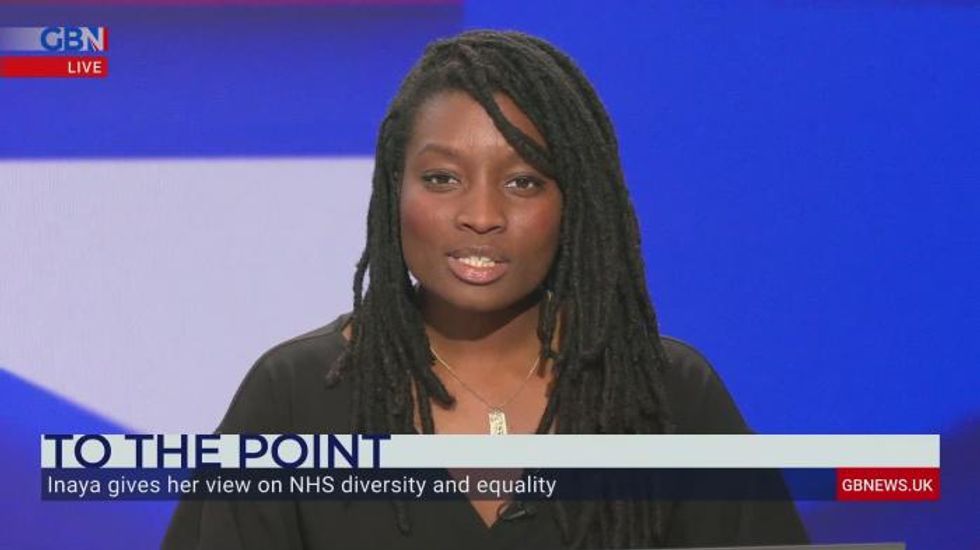Don't Miss
Most Read
Trending on GB News
The NHS has published a blog by Aishnine Benjamin, their Equality, Diversity and Inclusion lead at the Nursing and Midwifery Council.
This blog isn’t about recently published Office of National Statistics data which showed the ethnic breakdown of mortality rates for various diseases, revealing a lower mortality rate for many ethnic minority groups in several conditions. It wasn’t a call for the government to implement the Commission for Race and Ethnic Disparities recommendation to create an Office for Health Disparities to examine the relationship between health and ethnicity, nor was it a praise of the fact that vaccination rates for ethnic minority communities have increased substantially due to efforts to improve vaccine confidence.
All of these possible statements would have been reasonable, balanced and evidence-based.
Instead, the blog is called “Dear white people in the UK” and precedes to demand “white people” read the canonical work of contemporary identity politics: Robin D'Angelo's white fragility and to “educate” themselves on their “white privilege”.
Rather than challenge racial thinking wherever it comes from, the blog calls upon its readers to embrace a new and acceptable form of racial thinking, in the form of white racial self-consciousness, but to invert its meanings to be about unearned privilege, racism and guilt. It goes on to say “For white people who often don’t see themselves in racial terms.” You must not be “defensive”. Don’t say “I’m not political.” You don’t have to be vocal but do “listen.” Work on your empathy. Be uncomfortable.
Their words not mine.
Rather than encouraging people, regardless of race, to reject viewing themselves in racial terms, it demands that we see race, we judge by race, we treat people differently based on their race. This portrays the very antithesis of the goal of many of the universalistic anti-racism struggles of the past, which was to emphasise that the thread that unites us all as human beings was far stronger and far more meaningful than any superficial racialised category that society imposed upon us.
That what matters is our common humanity, our individuality, the content of our character, not the colour of our skin.
The blog precedes to list several books that we should all read. From Renni Eddo-Lodge’s Why I’m No Longer Talking to White People About Race to How Europe Under-Developed Africa by Peter Fryer and, to be honest, I welcome people being encouraged to pursue knowledge and read important works of history.
However, there are also several authors that are strikingly missing from this reading list. Black and ethnic minority intellectuals and authors who have a different take on the legacy of historic racism and why certain racial disparities exist in the present. To name a few, The Anatomy of Racial Inequality by Glenn Loury, Discrimination and Disparities by Thomas Sowell, The Content of Our Character by Shelby Steele.
These are all intellectually-sound, well-researched, philosophically coherent and compelling works. But, they all, in some form, reject the rigid racial thinking that underpins so much of today’s popular anti-racism movements.
Here’s my alternative blog.
Dear all people, embrace diversity of opinion. Reject racial identity politics, whether it comes from the left or the right, judge and treat people based on their behaviour not their skin colour.
Dear NHS and all other publicly-funded bodies, using your resources to empower the managerial class to discipline and lecture people on their privilege is poor use of public funds. Instead, money is better spent improving accessibility, trust and relationships with socially and economic-deprived communities of all backgrounds. Things that actually have a tangible benefit and don’t further divide and alienate people.











